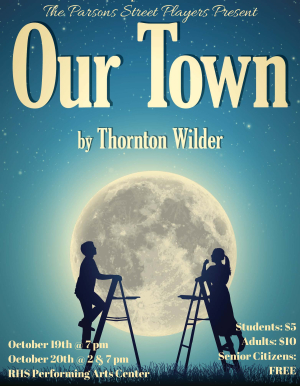Guest Writers: Local Food Systems Promote Sustainability & Economy

Our guest writers Claire Killian and Alex Yeh say local food systems are critical to promoting sustainability and the local economy.
Killian and Yeh both live on Claremont Avenue in Rye Gardens. They are juniors at The Academy at Rye High School, a new, experimental program centered on interdisciplinary, project based learning education being tested with about 24 juniors and seniors this year.
What do you think about local food systems? Join the conversation by leaving a comment below.
By Claire Killian and Alex Yeh

They say you are what you eat, so what does that say about us as a population? Americans tend to give alarmingly little thought about where their food comes from. Starting with the Nixon administration, this country has developed a self-destructive attitude towards agriculture. With the conglomeration of agribusinesses, just three companies control two-thirds of the national seed market, American consumers have all but lost power over their food. This gives agribusiness the ability to indulge in abhorrent practices like factory farming, a method most people will openly condemn but don’t think twice about when picking up deli meat, or other common industry behaviors, like dumping chemical fertilizer into local waterways. Over the last several decades, American agriculture has evolved to prioritize profit over the health and well-being of the farmers who support it, shoppers who purchase it, or the environment which hosts it.

So how can we fight back against a seemingly omnipotent monopoly? The answer is surprisingly simple: support local food systems. A local food system is something most Rye residents have interacted with at least once, it’s essentially a network of producers, typically small, independent farms, consumers, the average Rye resident, and food retailers, things like our Down to Earth farmer’s market (which moves to Mamaroneck in the winter). Rye already has an incredible number of institutions in place that supports a more comprehensive local food web. The Middle and High schools have a community garden, the town hosts an amazing farmers market, and new businesses like Milton Point Provisions are dedicated to an ethos of ‘buy local sell local’.
There are unquestionable environmental, social, and economic benefits to supporting local food systems. When people shop local, the money stays local. Buying from an independent nearby farm indirectly invests in the community surrounding Rye, building up important infrastructure and strengthening the region. Shopping locally also gives the consumer more control over the methods and morals which influenced how their food was grown, allowing people to prioritize values that reflect their own, such as free-range, grass-fed, no antibiotics, etc.

Alex Yeh and I are juniors at Rye High School, piloting the school’s new Academy program. Over the summer we developed a niche interest in local food systems after witnessing the evolution of farms and Community Supported Agriculture (CSA) initiatives during the pandemic. While grocery stores faltered, it seemed like direct farm-to-family networks flourished. We read Michael Pollan’s famous Omnivore’s Dilemma, Jonathan Safran Foer’s Eating Animals, researched American farm policy, and spoke to local chef’s about the importance of community support for farmers. We have developed a website in the interest of informing, and therefore empowering, consumers in Rye by curating local resources and helping to make the sustainable food movement to people just looking to feed their families.
Sustainability is at the center of this project, and that applies just as much to the consumer as to the environment. We want people to have the resources to take control of local economies and food systems, but in a way that is conducive to their position. Success will be hard to measure, as it evades the traditional, occasionally suffocating, metrics. Instead, we will know we have been successful when we have sparked an interest in people and inspired them to take a more active role in their food systems.
While we’re putting a lot of effort into translating this often extremely confusing food dynamic into digestible terms, it simply boils down to whether or not people will be willing to pay more and change their routines for an outcome that they may not directly experience. It’s difficult to ask people to make a comprehensive lifestyle change, whether it be logistically or financially, many of us are not used to viewing grocery shopping as a thing that takes time and effort. On a broader level, America needs to address it’s bizarre food culture, and on a personal level, we as consumers need to take control of the system of which we are a part.






Great to see high school students waking up,to the role that food plays in climate, health and social justice
Years ago, some John Jay high school students did a 30 day 100 mile food challenge. It’s a worthy activity.
Also the SnAP food challenge- try to eat on a SNAP budge for 30 days. Project based learning is far superior to testing and book learning. Kudos to these students and to alternative schools